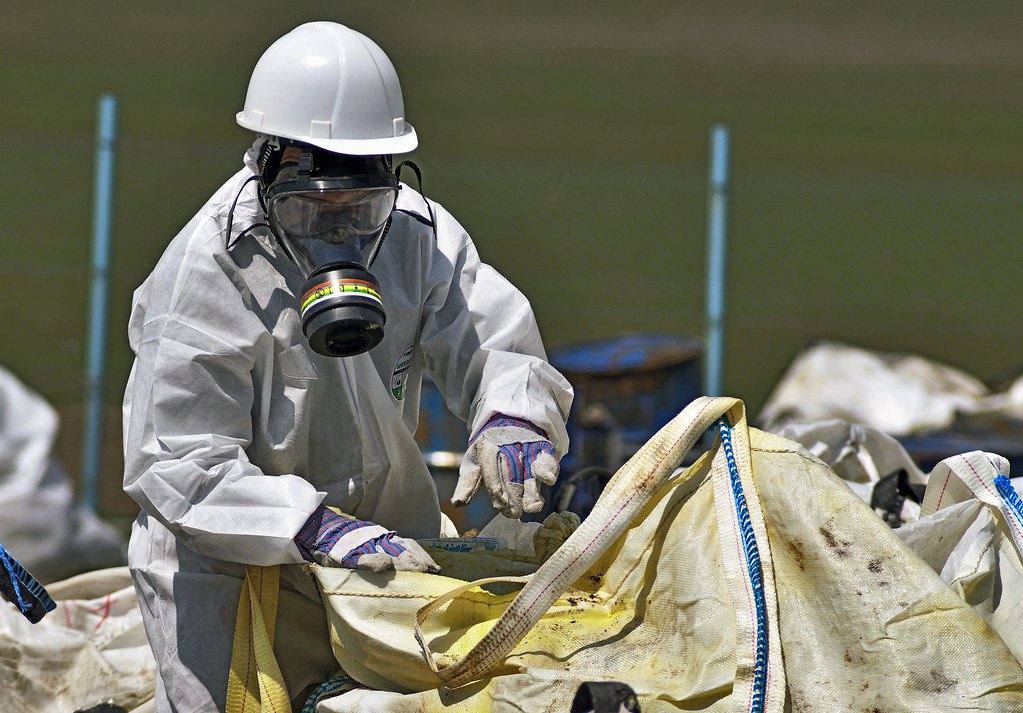Ecocide – An International Crime
By: Muhammad Maroof
Is recognizing ecocide as an international crime the next step in protecting the environment from large companies and the countries funding them? Vanuatu andgmail other small countries think so and have pushed for the recognition of the crime for years. On September 9th, 2024, ecocide was “formally introduced for consideration by member states of the International Criminal Court” (ICC).[1] Under the Rome Statute, the ICC has jurisdiction over four international crimes: genocide, crimes against humanity, war crimes, and crimes of aggression.[2] This means that the court may try any country or individual under these crimes.[3] Recent developments in war and business, however, are changing perspectives on what the tribunal should have jurisdiction over. Vanuatu and other Pacific Islands are pushing the ICC to incorporate the crime of ecocide to become a crime under the Rome Statute.[4]
What is Ecocide?
The crime of ecocide, as defined by the proposed statute, is the “unlawful or wanton acts committed with knowledge that there is a substantial likelihood of severe and either widespread or long-term damage to the environment being caused by those acts.”[5] The ICC would have to determine whether an activity is currently damaging or will damage an ecosystem.[6] An example of ecocide is the oil spilling in the Niger Delta due, in part, to the companies extracting oil from the area. Companies like Shell, Exxon Mobil, and Chevron have been draining the oil reserves in the Delta carelessly for decades.[7] The decades-old infrastructure, along with theft and sabotage of the oil plants, led to spills ruining the water and farmland for the millions of people living there.[8] Other examples include fracking and the overuse of pesticides.[9] Many countries already consider ecocide a crime[10], and other international law-making organizations like the EU have voted to recognize similar crimes.[11] Under both the EU’s newly approved directive on the protection of the environment through criminal law, and the pending one from the ICC, both individuals and companies will be able to be prosecuted for ecocide and related crimes.[12] [13]
Impacts of This Change
The Paris Climate Agreement is a similar multi-national policy with the goal of improving environmental policy, and the ICC’s latest potential development aims to improve this older legislature.[14] The Paris Accords and previous climate agreements cannot enforce their policies due to a lack of enforcement mechanisms, like a police force or fines.[15] Limiting the effectiveness of such international agreements to symbolic reasons, like social pressure from other member countries. [16] Introducing ecocide as an international crime will allow the International Criminal Court to prosecute those who commit the crime.[17] This will mean that individuals and huge multinational corporations will be subject to the ICC’s penalties and imprisonment.[18] However, countries like the United States, Russia, and China are not parties to the ICC, and introducing ecocide will not have much of an effect on the policies of these nations.[19]
Additionally, experts say that the regulations will also have a symbolic impact, as corporations that are seen as “supporting ecocide” will be negatively affected.[20] The companies will be detrimentally affected, possibly by losing customers and decreases in investments and revenue.[21] Unfortunately, it may take a decade before anyone is formally charged with ecocide after the ICC passes it.[22] Although the effectiveness of international law enforcement and penalties is often debated among scholars, the most important possible development following the introduction of ecocide is the countries adopting the crime into their legislature.
Conclusion
The ICC’s proposal of ecocide as a recognized crime under the Rome Statute is a large step forward in improving environmental accountability. Under “universal jurisdiction,” any country that is a member of the ICC may adopt the crime of ecocide into their own penal codes.[23] The ICC acts as a sign that the world takes environmental damage as seriously as other international crimes. Implementation of ecocide into the Rome Statue could put an end to the reckless and deliberate destruction of the environment. Party countries should seriously consider adopting the ICC’s statute or establishing similar laws at the national level to hold perpetrators accountable.
________________________________________
[1] Mass destruction of nature reaches International Criminal Court (ICC) as Pacific island states propose recognition of “ecocide” as international crime, Stop Ecocide Internation (last visited Nov. 11, 2024), https://www.stopecocide.earth/2024/mass-destruction-of-nature-reaches-international-criminal-court-icc-as-pacific-island-states-propose-recognition-of-ecocide-as-international-crime
[2] How the Court works, International Criminal Court (last visited Nov. 8, 2024), https://www.icc-cpi.int/about/how-the-court-works
[3] Id.
[4] Vanuatu President Calls for Ecocide Law at UN General Assembly, Stop Ecocide (Sept. 24, 2024), https://www.stopecocide.earth/breaking-news-22/vanuatu-president-calls-for-ecocide-law-at-un-general-assembly
[5] The Crime of Ecocide, The Promise Institute for Human Rights (last visited Nov. 8, 2024), https://promiseinstitute.law.ucla.edu/project/the-crime-of-ecocide/#:~:text=For%20the%20purpose%20of%20this,being%20caused%20by%20those%20acts
[6] Examples of Ecocide, End Ecocide (last visited Nov. 8, 2024), https://www.endecocide.org/en/examples-of-ecocide/
[7] Id.
[8] Id.
[9] Id.
[10] Rebecca Root, Climate crisis: push for ecocide to be added to Rome Statute, International Bar Association (Oct. 14, 2024), https://www.ibanet.org/ecocide-rome-statute
[11] DIRECTIVE OF THE EUROPEAN PARLIAMENT AND OF THE COUNCIL on the protection of the environment through criminal law and replacing, European Parliament (Mar. 13, 2024), https://data.consilium.europa.eu/doc/document/PE-82-2023-INIT/en/pdf.
[12] Id.
[13] Environmental crime: Council clears new EU law with tougher sanctions and extended list of offences, European Union (Mar. 26, 2024), https://www.consilium.europa.eu/en/press/press-releases/2024/03/26/environmental-crime-council-clears-new-eu-law-with-tougher-sanctions-and-extended-list-of-offences/
[14] Stankovic, T., Hovi, J. & Skodvin, T., The Paris Agreement’s inherent tension between ambition and compliance (Sept. 2, 2023), https://doi.org/10.1057/s41599-023-02054-6
[15] Id.
[16] Id.
[17] Fiona Harvey, Pacific islands submit court proposal for recognition of ecocide as a crime, The Guardian (Sept. 9, 2024), https://www.theguardian.com/law/article/2024/sep/09/pacific-islands-ecocide-crime-icc-proposal
[18] Rebecca Root, supra note 10.
[19] Fiona Harvey, supra note 17.
[20] Rebecca Root, supra note 10.
[21] Id.
[22] Fiona Harvey, supra note 17.
[23] Rachel Kilean, The Benefits, Challenges, and Limitations of Criminalizing Ecocide, The Global Observatory (Mar. 30, 2022), https://theglobalobservatory.org/2022/03/the-benefits-challenges-and-limitations-of-criminalizing-ecocide/


